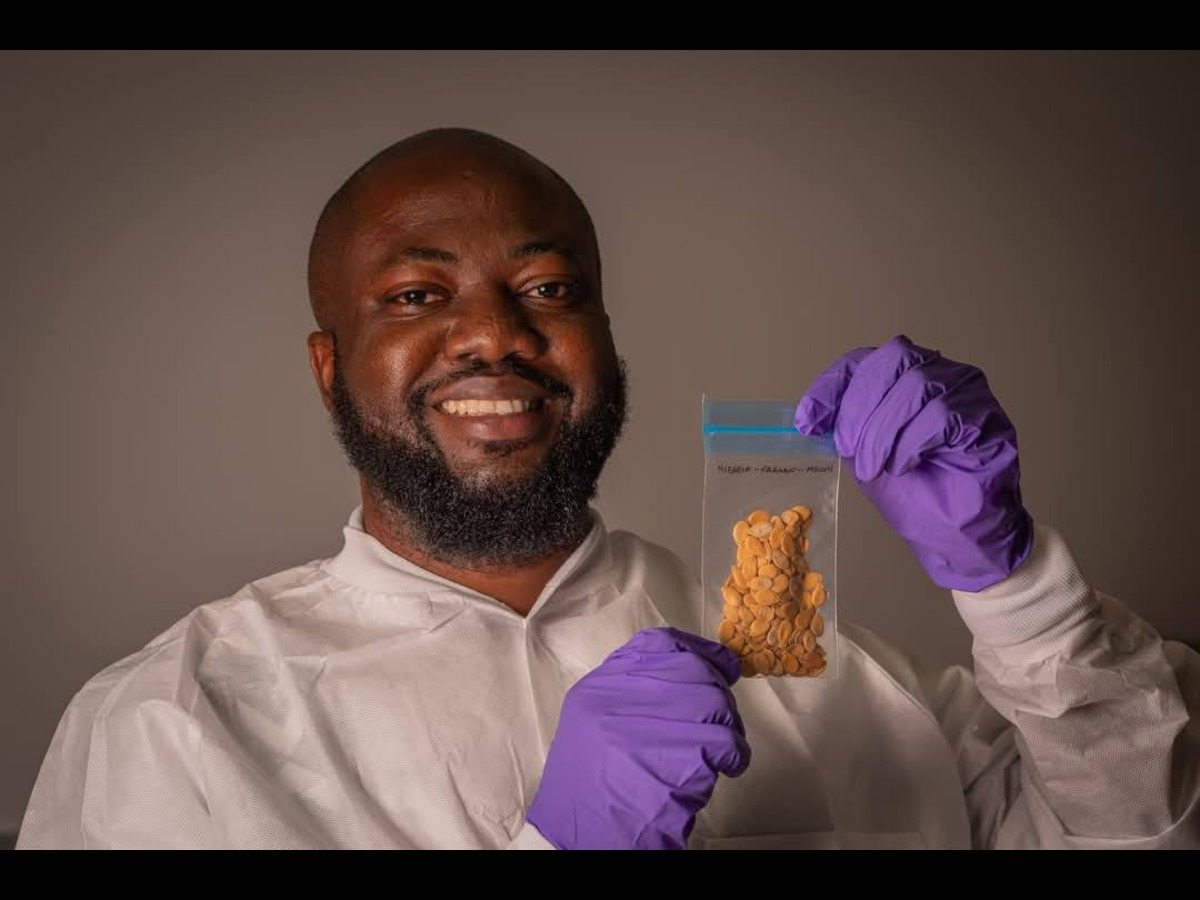Nigerian space scientist Temidayo Oniosun is sending Egusi (melon) seeds to outer space to assess their suitability for nutritional and functional applications in long-term human space exploration, according to a press release.
The initiative will launch on July 31 at 12:09 PM EDT (5:09 PM Nigerian time) aboard NASA’s Crew-11 resupply mission to the International Space Station (ISS) from Cape Canaveral, Florida.
This is the first time seeds from Nigeria, and any agricultural crop from West Africa, will be sent to space, and the experiment is in partnership with The Karman Project and Jaguar Space LLC, two organizations helping to advance global space cooperation and research.
“I am sending Egusi seeds to outer space to assess their suitability for nutritional and functional applications in long-term human space exploration. This is the first time in history seeds from Nigeria will be going to space,” Oniosun emphasized in the release.
Egusi seeds are a staple in West African cuisine. The Egusi seeds set to make history in space were sourced from Oyo State, Nigeria, and will be aboard the same launch as payloads supervised by NASA Astronaut and U.S. Navy Lieutenant Commander Jonny Kim, who will manage the transfer of experimental items between the Crew-11 Dragon spacecraft, the ISS, and Crew-10 Dragon, per the press release.
When the seeds return to Earth, they will undergo rigorous experimental analyses in partnership with Dr. Wagner Vendrame, a distinguished Professor at the University of Florida.
The research will involve “in vitro germination to observe any morphological or physiological changes and enable cloning of distinct variants, spectral imaging for non-destructive seed integrity and viability analysis, respiration tests using a respirometer to evaluate seed metabolic activity,” and “molecular analysis by a collaborator in Brazil to identify gene expression variations that could explain any changes observed after space exposure,” as stated by the press release.
“This research goes beyond agriculture; it’s about food security, adaptability, and scientific sovereignty in space exploration. If Egusi can survive and thrive after exposure to space conditions, it opens new doors for indigenous crops in extra-terrestrial agriculture,” Oniosun said.
The Nigerian space scientist, who is being praised for elevating African innovation to new heights, graduated with a Bachelor of Technology degree in meteorology from the Federal University of Technology, Akure, in 2016.
He also has a master’s degree in satellite applications from the University of Strathclyde, Glasgow, and earned his Ph.D. at the University of Delaware.
While a student of the Federal University of Technology, Akure, he led the University space club in launching a balloon into space in a contest in May 2015.
In 2016, he received the International Astronautical Federation Emerging Space Leadership Award for his work in the space industry.
Oniosun was also elected the regional coordinator for Africa for the Space Generation Advisory Council in February 2017 and re-elected for a second term in 2019.
The Nigerian government further relied on him for technical advice on its space programme and initiative.










